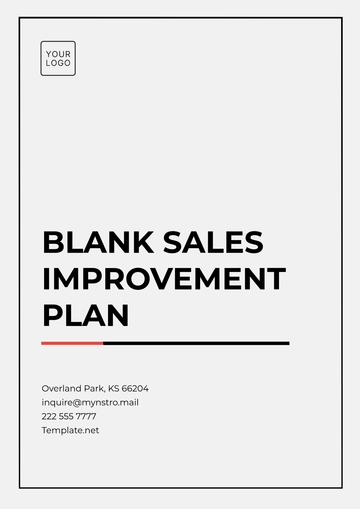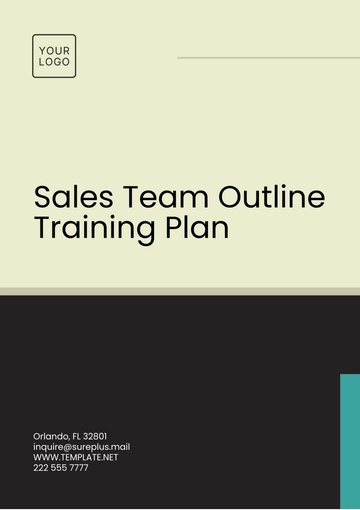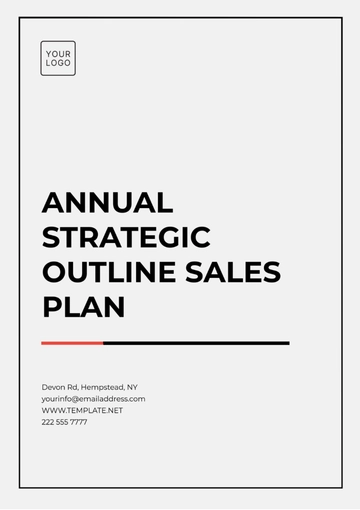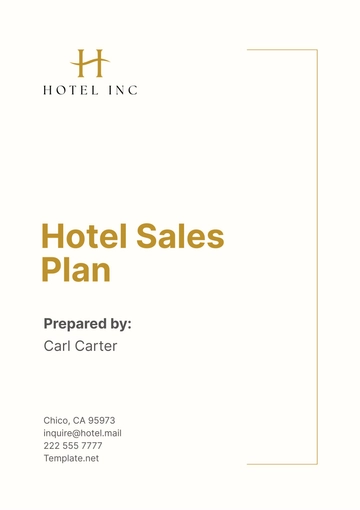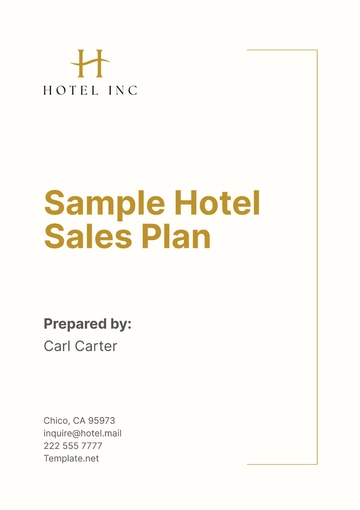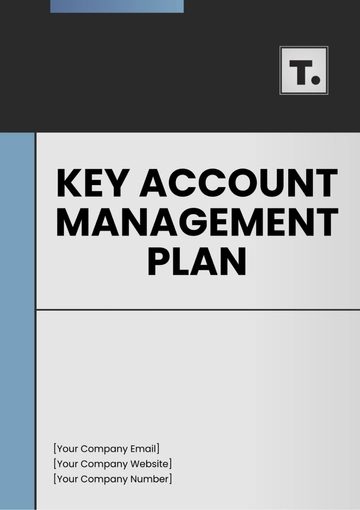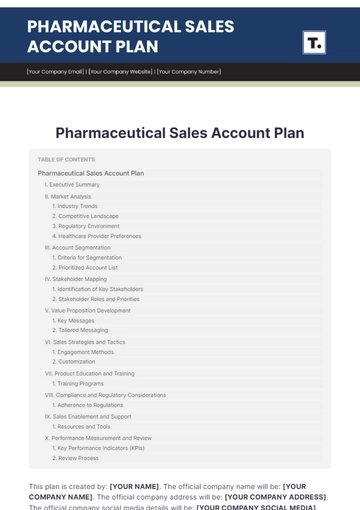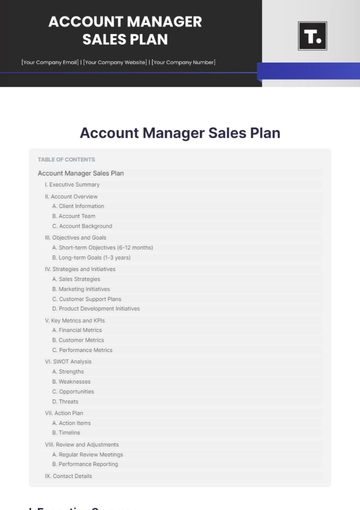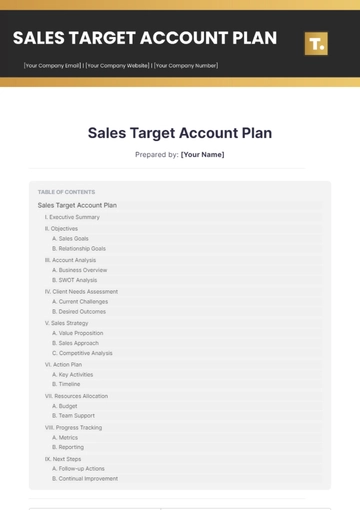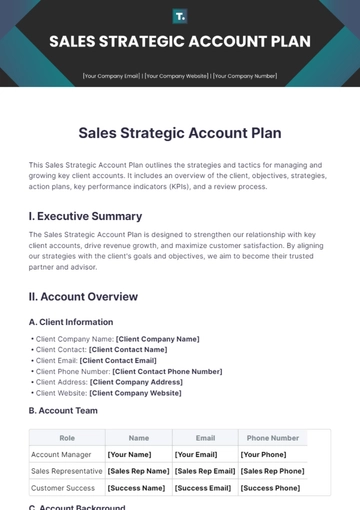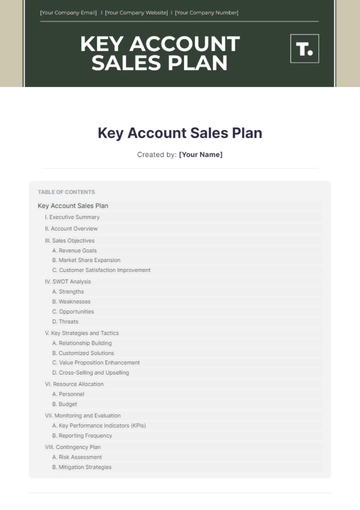Free Key Account Sales Plan
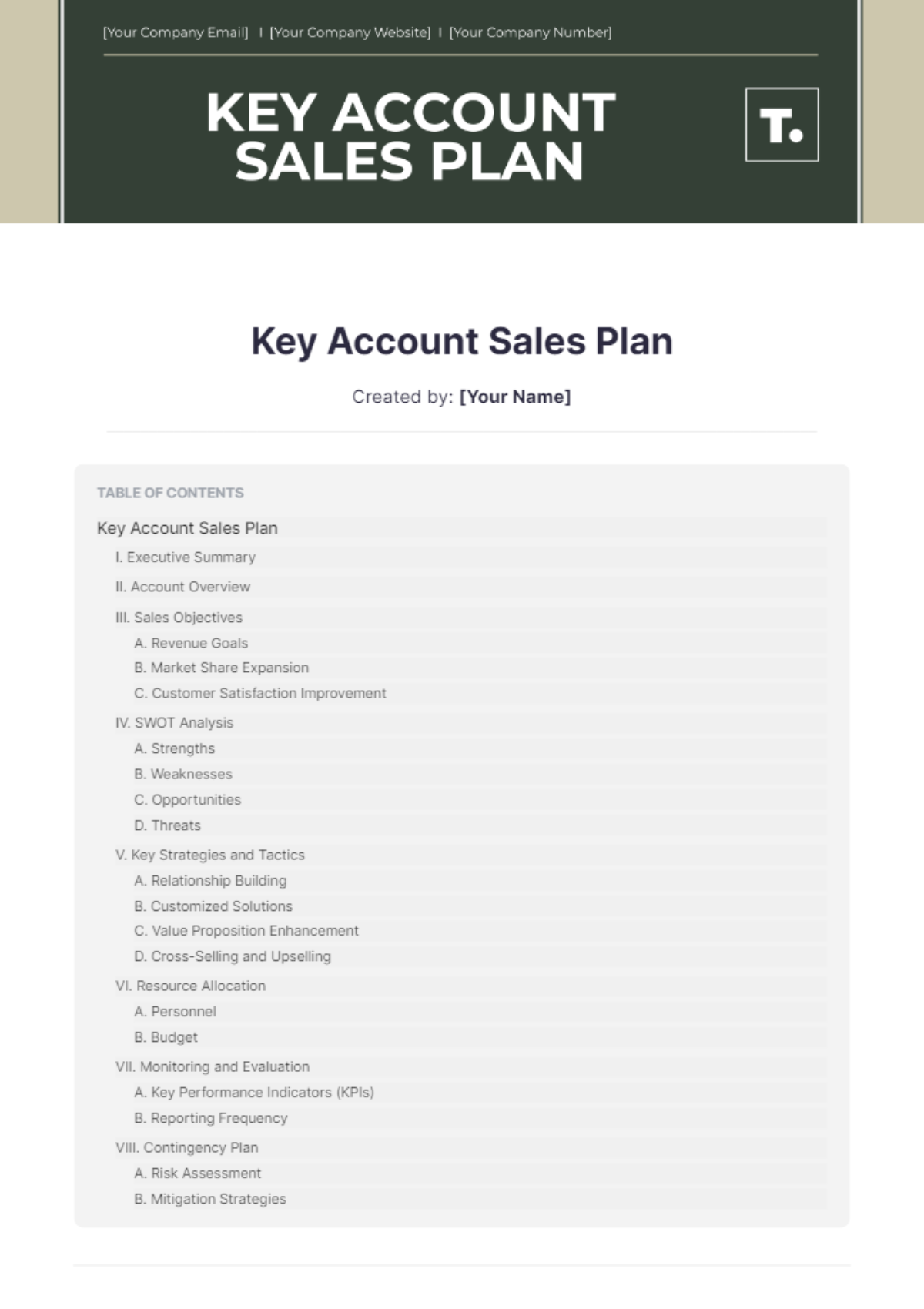
Created by: [Your Name]
_____________________________________________________________________________________
I. Executive Summary
The Key Account Sales Plan aims to strategically outline sales strategies and tactics tailored to maximize the value of our key accounts. By aligning our efforts with overall business objectives, prioritizing resource allocation, and emphasizing communication and performance tracking, this plan serves as a roadmap for driving sales growth and enhancing customer relationships.
II. Account Overview
Account Name: [Key Account Name]
Account Description:
With over three decades of industry experience, [Your Company Name] has established itself as a market leader known for innovation and reliability. The company's diverse portfolio ranges from cutting-edge electronics to household appliances, catering to a wide range of consumer needs.
Account Contact Information
Primary Contact Name: [Primary Contact Name]
Title: [Primary Contact Title]
Email: [Primary Contact Email]
Phone Number: [Primary Contact Phone Number]
Address: [Account Address]
Account Background
[Your Company Name] has been a valued client since 2055, with a history of successful collaborations and projects. Over the years, our relationship has grown stronger, with Acme consistently seeking our expertise for their evolving needs. We have provided tailored solutions, exceptional service, and unparalleled support, cementing Acme Corporation as one of our key accounts.
III. Sales Objectives
A. Revenue Goals
Increase revenue from the key account by 15% by the end of 2055.
B. Market Share Expansion
Expand market share within the key account's industry by 10% by 2055.
C. Customer Satisfaction Improvement
Achieve a customer satisfaction rating of 95% from the key account by 2055.
IV. SWOT Analysis
A. Strengths
Strong brand reputation in the industry.
High-quality products/services.
B. Weaknesses
Limited presence in certain geographical regions.
Reliance on a specific technology platform.
C. Opportunities
Emerging market trends that align with our offerings.
Potential for expanding product/service offerings.
D. Threats
Intense competition from established competitors.
Economic downturn impacting client spending.
V. Key Strategies and Tactics
A. Relationship Building
Schedule regular meetings with key stakeholders to understand their evolving needs and challenges.
Establish a dedicated communication channel for quick response to queries and concerns.
B. Customized Solutions
Conduct a comprehensive analysis of the key account's requirements to tailor products/services accordingly.
Offer exclusive discounts or incentives to encourage loyalty and repeat business.
C. Value Proposition Enhancement
Highlight unique value propositions that differentiate our offerings from competitors.
Provide personalized demonstrations or trials to showcase the benefits of our solutions.
D. Cross-Selling and Upselling
Identify opportunities to introduce additional products/services that complement existing offerings.
Implement a referral program to incentivize the key account to refer new clients/customers.
VI. Resource Allocation
A. Personnel
Assign a primary account manager responsible for overseeing all interactions with the key account.
B. Budget
Allocate 20% of the sales budget specifically for activities related to the key account.
VII. Monitoring and Evaluation
A. Key Performance Indicators (KPIs)
Monthly revenue generated from the key account.
Customer satisfaction ratings.
Number of new opportunities identified within the account.
B. Reporting Frequency
Weekly progress updates during team meetings.
Monthly detailed reports submitted to the Sales Director.
VIII. Contingency Plan
A. Risk Assessment
Identify potential risks such as loss of key personnel within the key account or changes in market conditions.
B. Mitigation Strategies
Develop contingency plans to address identified risks, including proactive communication and alternative revenue streams.
- 100% Customizable, free editor
- Access 1 Million+ Templates, photo’s & graphics
- Download or share as a template
- Click and replace photos, graphics, text, backgrounds
- Resize, crop, AI write & more
- Access advanced editor
Discover unparalleled convenience with the Key Account Sales Plan Template from Template.net. Crafted for seamless customization, this editable template empowers your sales strategy. Tailor-made for your business needs, it's fully customizable and editable in our AI Tool, ensuring effortless adaptation to evolving market dynamics. Elevate your sales game effortlessly.
You may also like
- Finance Plan
- Construction Plan
- Sales Plan
- Development Plan
- Career Plan
- Budget Plan
- HR Plan
- Education Plan
- Transition Plan
- Work Plan
- Training Plan
- Communication Plan
- Operation Plan
- Health And Safety Plan
- Strategy Plan
- Professional Development Plan
- Advertising Plan
- Risk Management Plan
- Restaurant Plan
- School Plan
- Nursing Home Patient Care Plan
- Nursing Care Plan
- Plan Event
- Startup Plan
- Social Media Plan
- Staffing Plan
- Annual Plan
- Content Plan
- Payment Plan
- Implementation Plan
- Hotel Plan
- Workout Plan
- Accounting Plan
- Campaign Plan
- Essay Plan
- 30 60 90 Day Plan
- Research Plan
- Recruitment Plan
- 90 Day Plan
- Quarterly Plan
- Emergency Plan
- 5 Year Plan
- Gym Plan
- Personal Plan
- IT and Software Plan
- Treatment Plan
- Real Estate Plan
- Law Firm Plan
- Healthcare Plan
- Improvement Plan
- Media Plan
- 5 Year Business Plan
- Learning Plan
- Marketing Campaign Plan
- Travel Agency Plan
- Cleaning Services Plan
- Interior Design Plan
- Performance Plan
- PR Plan
- Birth Plan
- Life Plan
- SEO Plan
- Disaster Recovery Plan
- Continuity Plan
- Launch Plan
- Legal Plan
- Behavior Plan
- Performance Improvement Plan
- Salon Plan
- Security Plan
- Security Management Plan
- Employee Development Plan
- Quality Plan
- Service Improvement Plan
- Growth Plan
- Incident Response Plan
- Basketball Plan
- Emergency Action Plan
- Product Launch Plan
- Spa Plan
- Employee Training Plan
- Data Analysis Plan
- Employee Action Plan
- Territory Plan
- Audit Plan
- Classroom Plan
- Activity Plan
- Parenting Plan
- Care Plan
- Project Execution Plan
- Exercise Plan
- Internship Plan
- Software Development Plan
- Continuous Improvement Plan
- Leave Plan
- 90 Day Sales Plan
- Advertising Agency Plan
- Employee Transition Plan
- Smart Action Plan
- Workplace Safety Plan
- Behavior Change Plan
- Contingency Plan
- Continuity of Operations Plan
- Health Plan
- Quality Control Plan
- Self Plan
- Sports Development Plan
- Change Management Plan
- Ecommerce Plan
- Personal Financial Plan
- Process Improvement Plan
- 30-60-90 Day Sales Plan
- Crisis Management Plan
- Engagement Plan
- Execution Plan
- Pandemic Plan
- Quality Assurance Plan
- Service Continuity Plan
- Agile Project Plan
- Fundraising Plan
- Job Transition Plan
- Asset Maintenance Plan
- Maintenance Plan
- Software Test Plan
- Staff Training and Development Plan
- 3 Year Plan
- Brand Activation Plan
- Release Plan
- Resource Plan
- Risk Mitigation Plan
- Teacher Plan
- 30 60 90 Day Plan for New Manager
- Food Safety Plan
- Food Truck Plan
- Hiring Plan
- Quality Management Plan
- Wellness Plan
- Behavior Intervention Plan
- Bonus Plan
- Investment Plan
- Maternity Leave Plan
- Pandemic Response Plan
- Succession Planning
- Coaching Plan
- Configuration Management Plan
- Remote Work Plan
- Self Care Plan
- Teaching Plan
- 100-Day Plan
- HACCP Plan
- Student Plan
- Sustainability Plan
- 30 60 90 Day Plan for Interview
- Access Plan
- Site Specific Safety Plan


